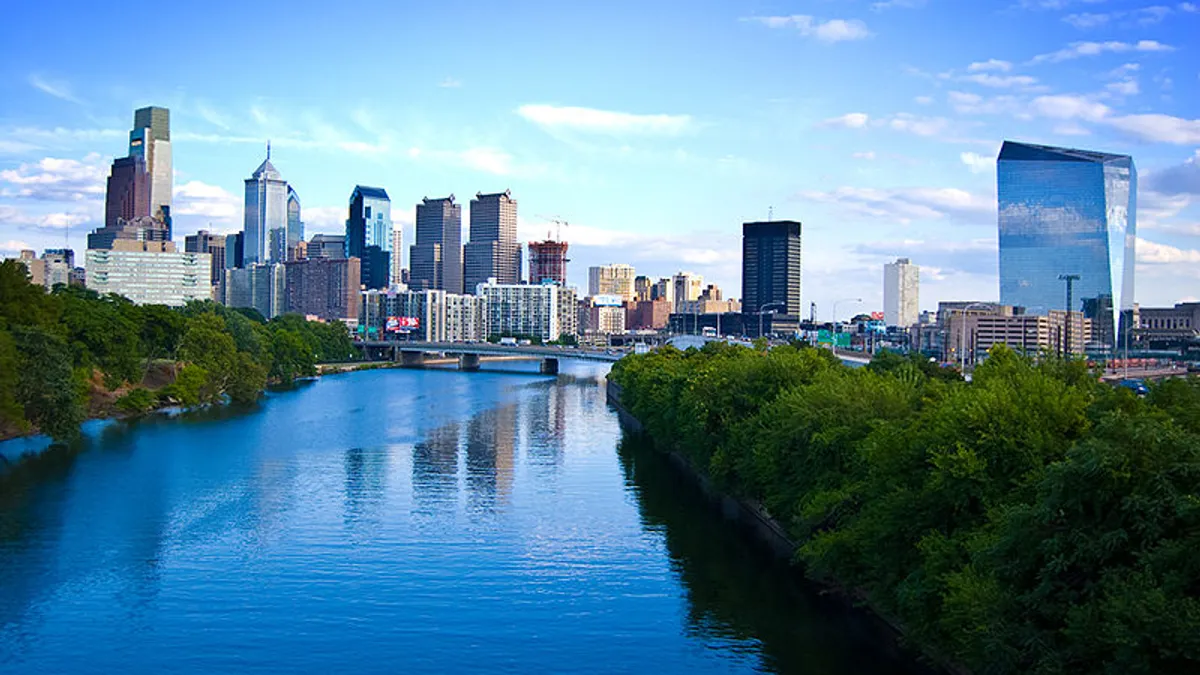Dive Brief:
- The Philadelphia Water Department (PWD) recently issued a request for information (RFI) about potential ways to co-digest food scraps at either of its two "water pollution control plants." PWD is specifically looking to accept pre-processed, liquefied material and would likely start with a demonstration project before scaling up.
- These two PWD facilities are set up to capture biogas for on-site use and create Class A biosolids that can be turned into fertilizer pellets. PWD already co-digests aircraft deicing fluid through a partnership with the Philadelphia International Airport and has determined that excess capacity is available, creating "a prime opportunity for food waste."
- The RFI includes multiple pages of specifications about the quality of expected material and the experience of any potential vendor. PWD would expect all contaminants to be removed; would not accept commercial or industrial fats, grease or oil; and would need a vendor that could deliver the liquefied material to their facilities directly.
Dive Insight:
The Philadelphia Streets Department estimates that 228,000 tons of food are discarded in the city every year, making this portion of the waste stream a key component of multiple city initiatives. In 2015, the city began requiring certain commercial generators to divert their food scraps and last year Mayor Jim Kenney established a goal of "zero waste" by 2035. As part of that goal, Kenney established a 16-member Zero Waste and Litter Cabinet to develop a detailed plan by September. Discussions and hearings have been ongoing in the months since.
Philadelphia's previous mayor mandated the installation of in-sink disposers for new residential construction — a concept which has been gaining more traction in other cities too — but this new proposal could lead to a significant expansion in material diversion. Co-digestion has been receiving renewed focus from industry associations and is currently on display at various levels in multiple cities. Waste Management's CORe system is one of the pre-processing options being used to create a liquefied feedstock and the company could be among the list of potential vendors responding to Philadelphia's RFI.
The city has made it clear that this is an early, non-binding step toward a potential co-digestion project though reaffirmed that food waste diversion is "critical" to achieving its 2035 goal. An information session will be held on July 6 and RFI responses are due by August 4.












